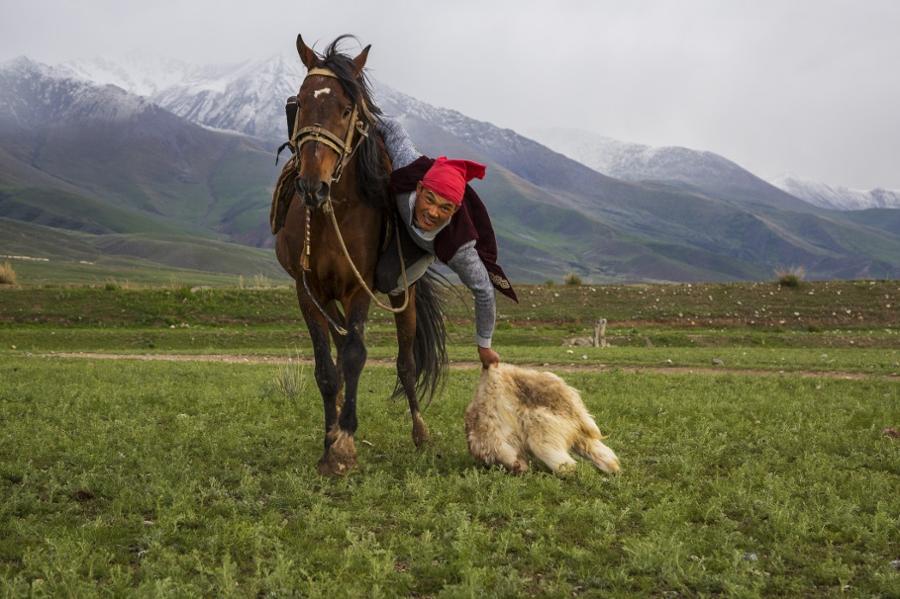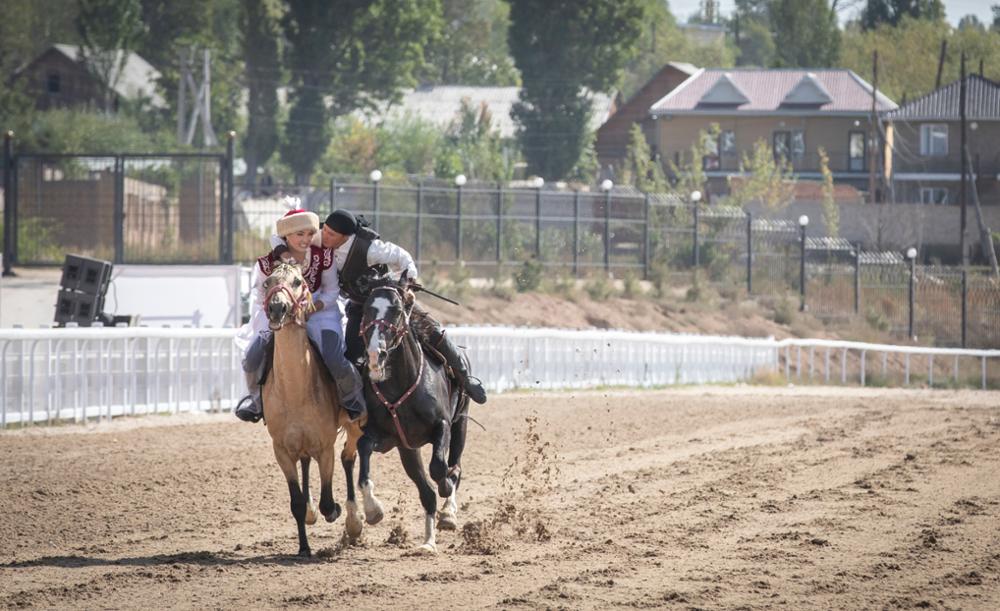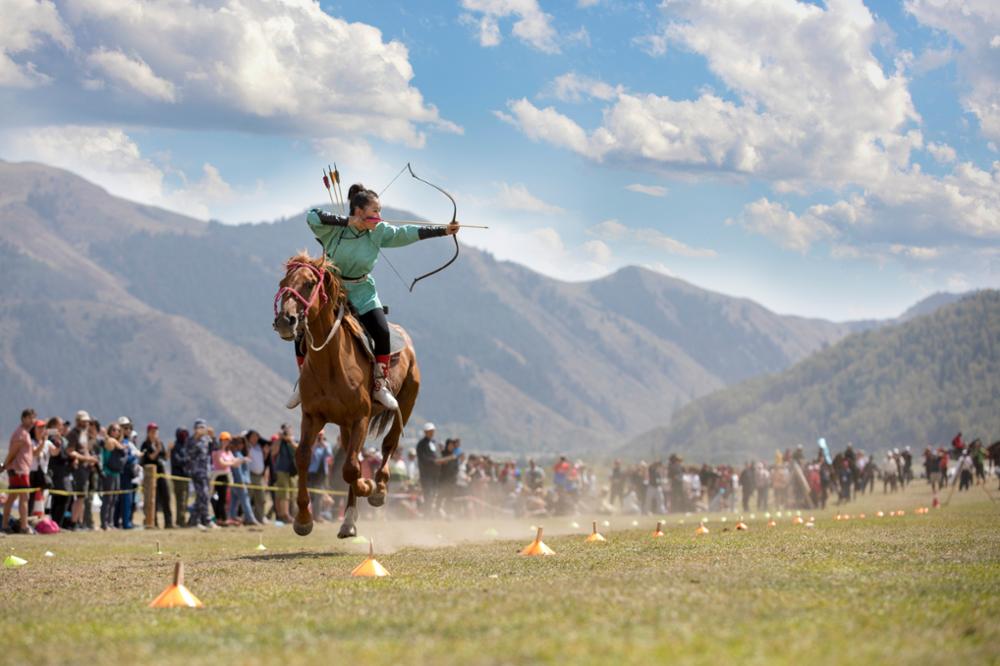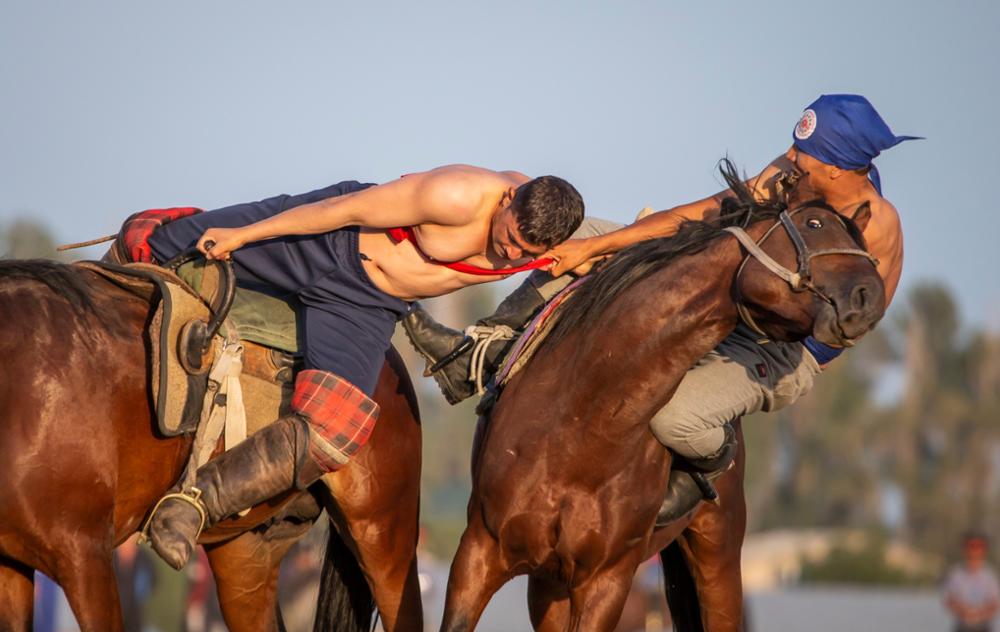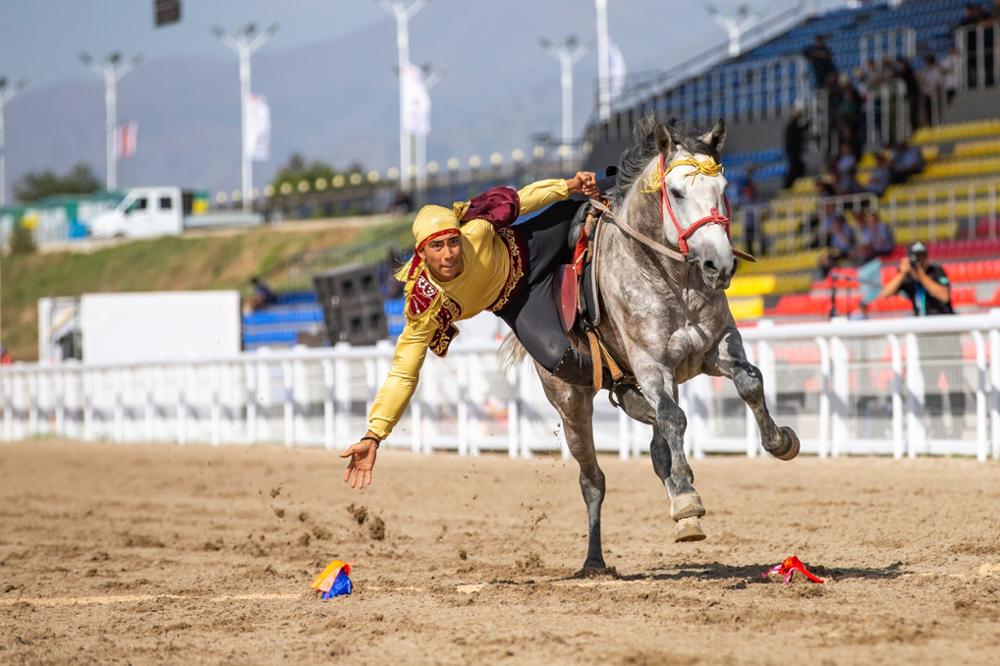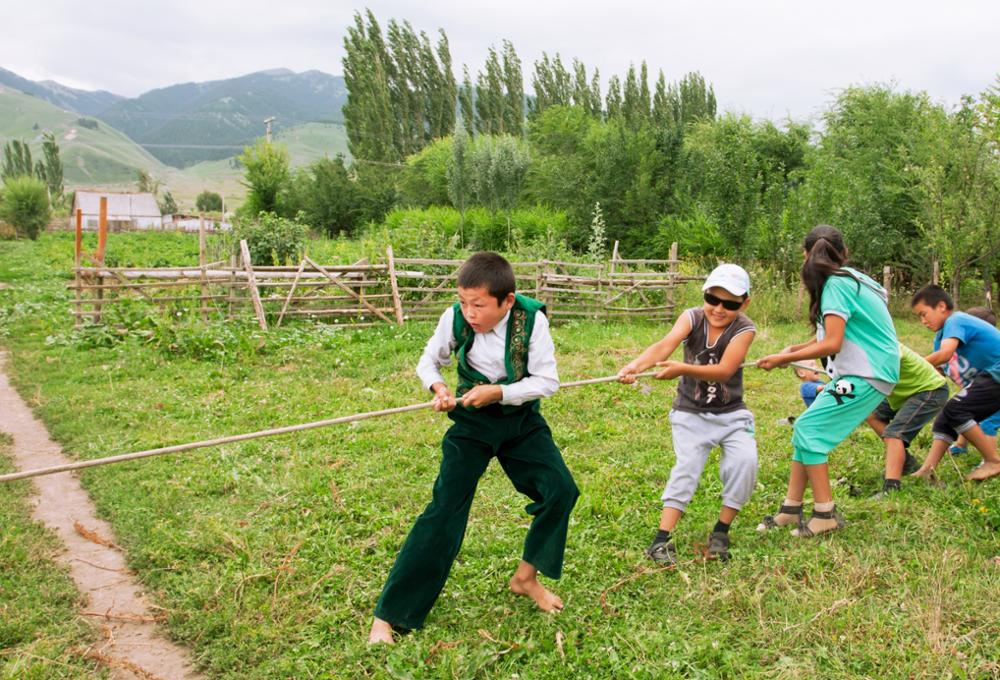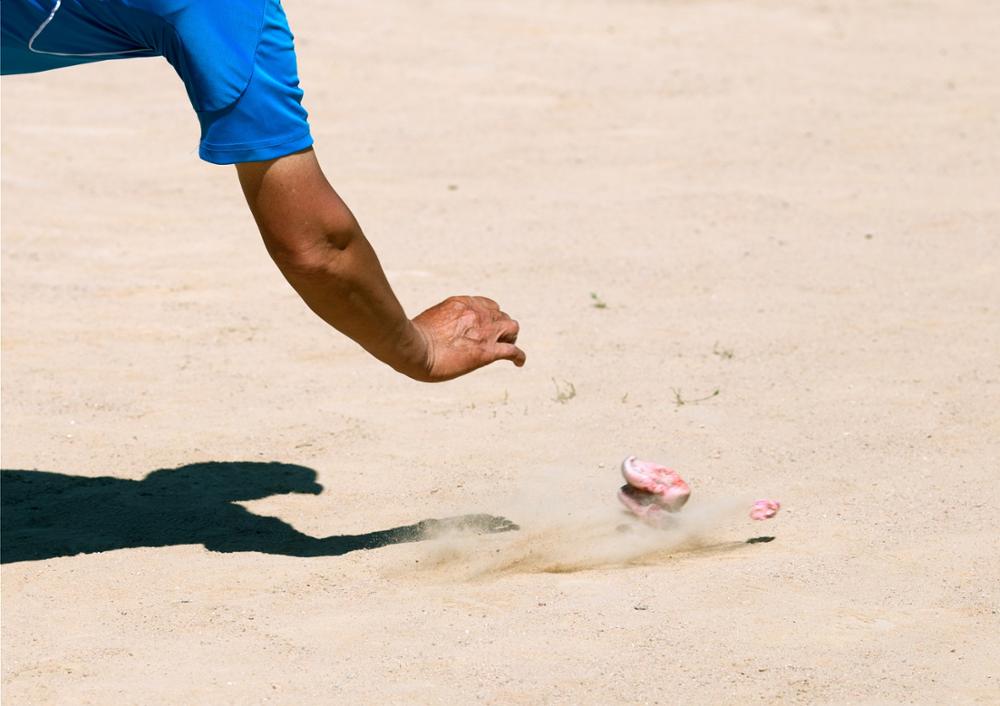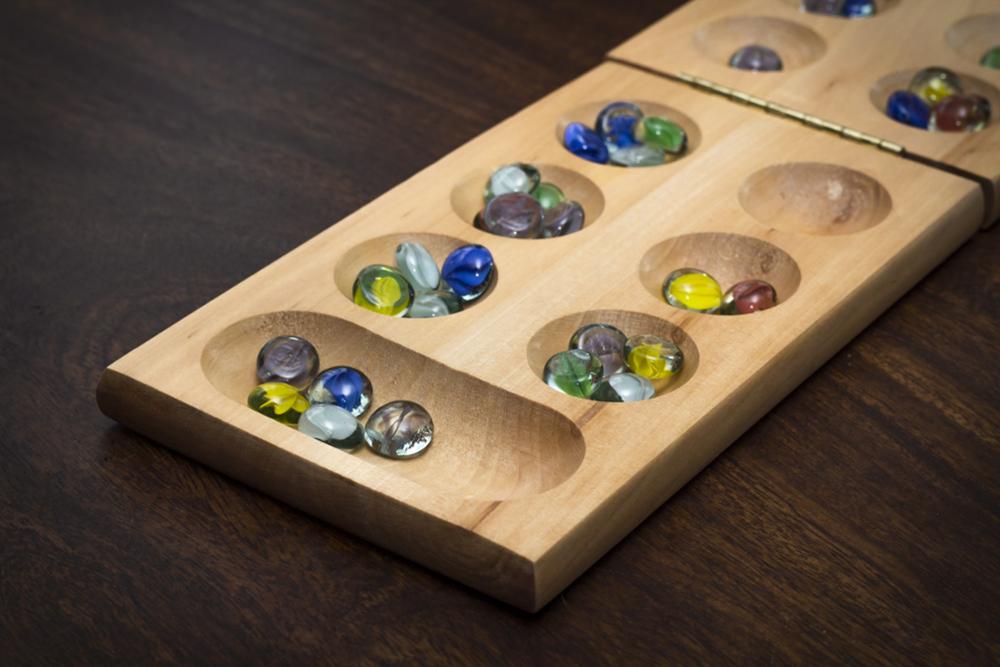
A guide to Kyrgyz nomad games
Even though the Kyrgyz people became sedentary or semi-nomad during the 20th century, they have kept a large part of their traditions and nomadic heritage, including several games which are still very popular today. Here are some of these games that contribute to making the Kyrgyz culture so charming, original and authentic:
Kok-Boru or national football
This horse game is somehow similar to a mix of polo, rugby and football. It’s played all around Central Asia under different names (buzkachi, kokpar, ulok...). The rules also vary depending on the country.
Kok-Boru is still very popular in modern Kyrgyzstan. It’s played with teams of 12 maximum, but only four players are on the field at a time. Horse riders have to grab a sheep or goat carcass (without the head) from their horse, gallop and throw it in a goal. The team that marks the most goals wins. This game is played in three times of 20 minutes.
Kok-Boru is mostly played by men and shows the agility and excellence of the riders and their horses. They have to bend down to reach the animal on the ground, find their way out of mobs of horses, throw out their opponents and throw the “ball” or sheep, which weighs at least 30 kg, into a high goal. The horses and players often wrestle. Horses are trained to push other animals or even bite them and are just as impressive as their riders.
Kok-Boru is played almost every week in the villages and especially for ceremonies, like weddings, sponsored by rich families. There are also national and international championships of Kok-Boru. Kok-Boru for the Kyrgyz is much more than a sport; it’s a way of life, inherited from the nomad ancestors, that shows the soul and culture of this proud people.
Until recently Kok-Boru was actually played differently, individually. Dozens or hundreds of men would affront each other for the animal to score a personal goal. It used to prepare men and horses for war year round. It’s only in 1996 that Kyrgyzstan founded the Kok-Boru Federation and adopted these rules to make Kok-Boru a sport that could be played internationally.
You might have the opportunity to see a Kok-Boru match during your trip in Kyrgyzstan, in villages or at Son Kul Lake.
Kyz Kumay: man vs. woman
This interesting game is a fight between a man and a woman, both on horses. At first, the man has to catch the woman. If he does, he’s allowed to kiss her. Then comes the revenge, when the woman gallops after the man and can hit him if she catches him. It’s a short and rapid game that brings a lot of joy and laughs during parties.
Archery
Nomadic people are experts of archery, on foot and on horseback. Kyrgyzstan is known around the globe for its excellent women archers, who are able to perfectly throw an arrow with their feet while galloping on a horse! Don’t miss out on the opportunity to see a demonstration of archery while in Kyrgyzstan.
Wrestling or the demonstration of forces
Wrestling is another sport very important to nomads. It used to be able to maintain men in shape during times of peace and challenge their force. There are many different types of national wrestling, popular among the Kyrgyz people for centuries already. There are even traces of wrestling in the ancient epics.
Traditionally, the only rule would be that the wrestler would win when his opponent was on the ground. In this version of the game there are very little rules and no interference from the referee. There were also no limitations in weight, and the whole championship would end with only one winner.
Another form of popular wrestling is the “er enish”, wrestling on horseback. Horses were an integral part of nomad life, being their only means of transport, their tool for breeding and their loyal companion. This is why most games and sports have a horse version. The goal here is to make your opponent fall from his horse so that at least one part of his body touches the ground. It’s a very spectacular from of wrestling, often quite aggressive, where horses also wrestle with each other, are very strong and perfectly obedient.
Tiyin Enmei: pick up the money
In this game, young horse riders gallop to pick up money on the ground. These are usually bills of 20 or 50 soms, but it depends on the generosity of the public. Finders keepers!
Tug of war
This family classical takes its origins from nomadic culture. Tug of war is a game of team, of clans, that doesn’t require much equipment, can be played anywhere and at any time, hence ideal for the nomads always on the move.
This game also allows to see which of two tribes is stronger, has a better strategy and cooperates well.
Try a game of tug of war in a yurt camp in Son Kul or in Tash Rabat.
Ordo: a game of knucklebones
This is the beloved game of young Kyrgyz nomad children. Ordo is a game of strategy and conquest, played with sheep bones. It represents the ordo, the Khan’s empire, traced by a circle in chalk, and the battle to conquer it. It’s a little like a game of petanque or bowling. You have to throw the bones and hit the central piece so that it goes out of the circle.
Toguz Korgool: the Kyrgyz mancala
The Kyrgyz don’t only have horse games and games that demonstrate strength. One of their favorite hobbies is the toguz korgool, a sort of mancala, a board game very popular throughout Asia. The aim of the game is to collect as many pawns as possible. Every player has nine wells and in each of which nine pawns are set in the beginning. This is what gave the name to the game, “toguz” meaning nine in Kyrgyz. This game used to be played by armies and soldiers to develop their military strategy.
